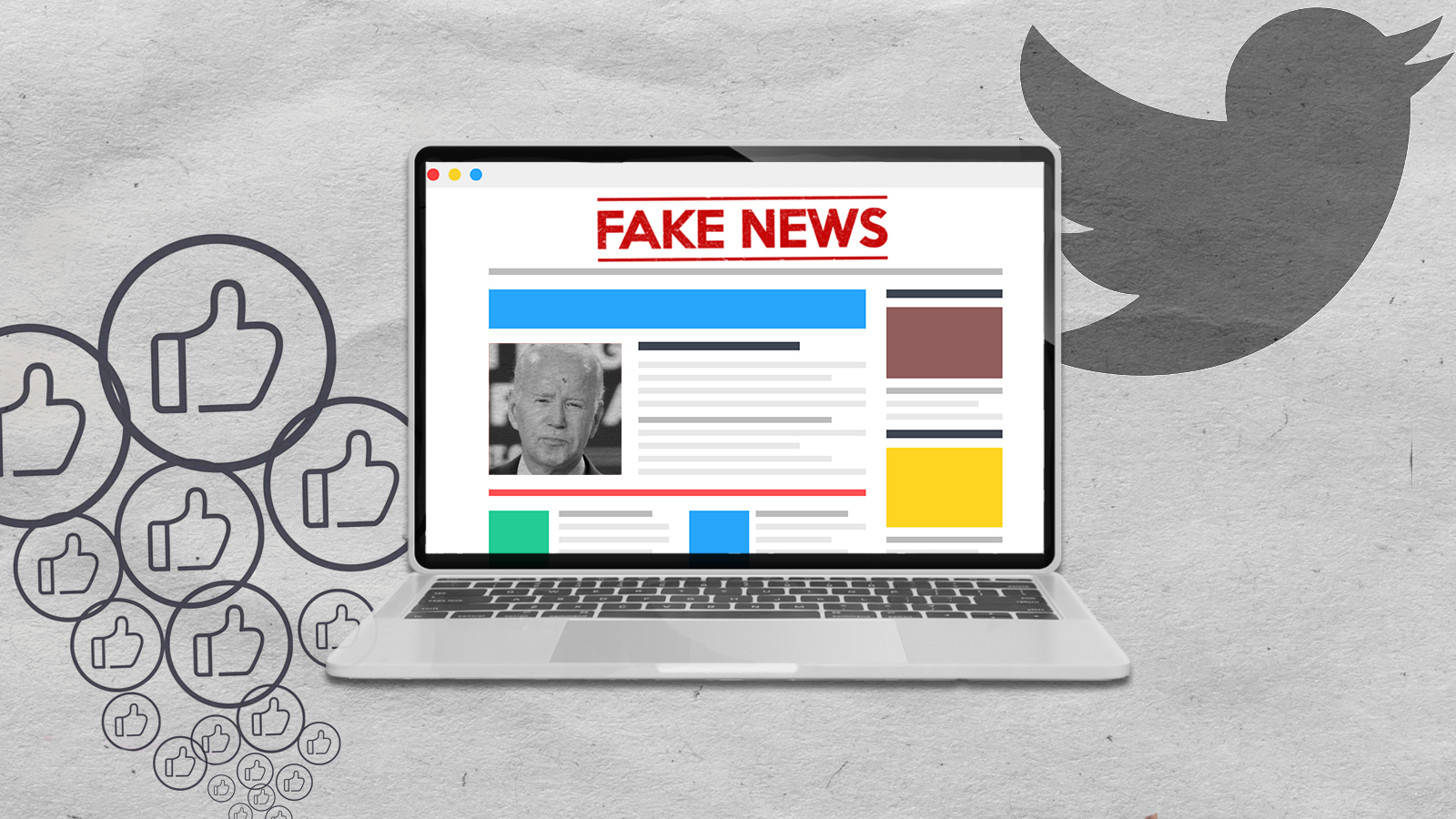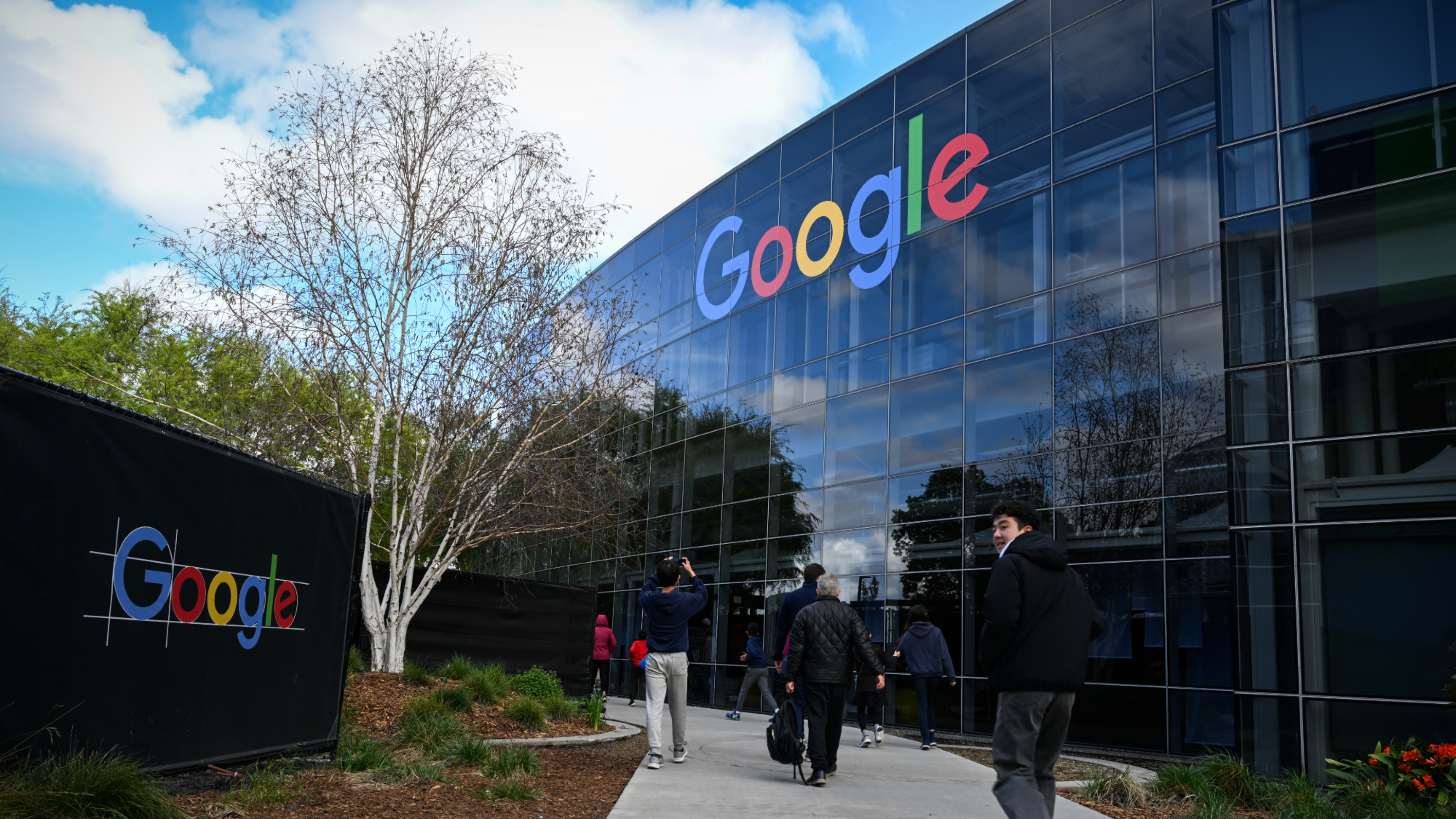Biden, the courts and the fight against disinformation
Republicans see censorship. Experts worry about a 'tsunami' of falsehoods.


A free daily email with the biggest news stories of the day – and the best features from TheWeek.com
You are now subscribed
Your newsletter sign-up was successful
What's the difference between fighting disinformation and good old-fashioned censorship? The question is once again at the forefront of debates in Washington D.C. after a federal judge set limits on the Biden administration's contacts with tech firms, The Washington Post reported. As a result of the order, the State Department canceled a planned meeting with Facebook officials to discuss 2024 election preparations.
The judge's order came in response to a lawsuit by Republican attorneys general, Quartz reported. Government efforts to fight online misinformation about vaccines and elections by coordinating with big social media sites amounted to censorship, the AGs said, and the judge agreed. That government-tech coordination "arguably involves the most massive attack against free speech in United States' history," wrote Judge Terry A. Doughty.
Disinformation researchers worry the ruling "could further hamper efforts to curb harmful content," The New York Times reported. "The government should be able to inform social media companies about things that they feel are harmful to the public," said Miriam Metzger of the University of California, Santa Barbara. With the 2024 election approaching, some particularly worry the United States will once again be vulnerable to the kind of chaos unleashed by Russian hackers during the 2016 election that helped put Donald Trump in the White House.
The Week
Escape your echo chamber. Get the facts behind the news, plus analysis from multiple perspectives.

Sign up for The Week's Free Newsletters
From our morning news briefing to a weekly Good News Newsletter, get the best of The Week delivered directly to your inbox.
From our morning news briefing to a weekly Good News Newsletter, get the best of The Week delivered directly to your inbox.
'A wall of separation'
Doughty's ruling short-circuits "essential dialogue between the government and social media companies about online speech and potentially lethal misinformation," Leah Litman and Lawrence H. Tribe write at Just Security. Yes, there are times when the government violates the First Amendment's free speech guarantees by "effectively forcing" private companies to remove social media posts. But there are plenty of legitimate reasons — like, say, foreign government efforts to interfere in an election — that the government might ask for such removal. "To treat the First Amendment as creating something like a wall of separation between government and powerful private actors is utterly bizarre."
Some of the vaccine claims flagged by the White House were "clearly erroneous," The Wall Street Journal editorialized. "But many are scientifically debatable." And if the government was merely "recommending" that posts be removed, that request came with implicit coercion: "The companies knew they could face government investigations and punishment if they disobeyed." The courts will clarify where the lines should be drawn, and the plaintiffs are doing a public service" by forcing the issue.
Worries about a new surge of disinformation might be overblown, Tufts University's Daniel W. Drezner wrote at Substack. The assumption behind such fears is that tech giants like Twitter or Facebook "will be just as powerful in 2024 as they were in 2020 and 2016." That may not be true. Twitter, for example, has been in "epic fail" mode, with many users scurrying to alternatives like Bluesky or Meta's new service, Threads. "It is more difficult for disinformation to spread if the social media universe is balkanized across multiple platforms — which is where we are now."
'Shaky ground'
The Biden administration is appealing Doughty's order, Politico reported. The case will be heard by the Fifth Circuit Court of Appeals, which "is considered one of the most conservative federal appeals courts in the nation," but has previously overruled Doughty on other issues.
A free daily email with the biggest news stories of the day – and the best features from TheWeek.com
Some experts say Doughty's order is on "shaky ground," Reuters reported. While White House contacts with tech companies raise real free speech concerns, "there was no precedent to support the sweeping preliminary order" issued by Doughty. "I'm not aware of a single communication that conveys a threat or any form of either express or implied statement saying, 'You'd better do this, or else,'" said Burt Neuborne, a professor at New York University School of Law. "This opinion seems to think that when the government talks to you it inevitably is frightening you."
Even without the ruling, some safeguards are falling, The Hill reported. YouTube, Meta and Twitter have all recently announced the rollback of policies that prevented conspiracy theories about elections and vaccines from gaining a wide audience. "It just creates a huge problem for 2024," said Darrell West of the Brookings Institution's Center for Technology Innovation. "I think we're going to face a tsunami of disinformation."
Joel Mathis is a writer with 30 years of newspaper and online journalism experience. His work also regularly appears in National Geographic and The Kansas City Star. His awards include best online commentary at the Online News Association and (twice) at the City and Regional Magazine Association.
-
 Nuuk becomes ground zero for Greenland’s diplomatic straits
Nuuk becomes ground zero for Greenland’s diplomatic straitsIN THE SPOTLIGHT A flurry of new consular activity in the remote Danish protectorate shows how important Greenland has become to Europeans’ anxiety about American imperialism
-
 ‘This is something that happens all too often’
‘This is something that happens all too often’Instant Opinion Opinion, comment and editorials of the day
-
 House votes to end Trump’s Canada tariffs
House votes to end Trump’s Canada tariffsSpeed Read Six Republicans joined with Democrats to repeal the president’s tariffs
-
 Google ruled a monopoly over ad tech dominance
Google ruled a monopoly over ad tech dominanceSpeed Read Attorney General Pam Bondi hailed the ruling as a 'landmark victory in the ongoing fight to stop Google from monopolizing the digital public square'
-
 A.I. powered 'robot lawyer' will appear in a U.S. court for the first time
A.I. powered 'robot lawyer' will appear in a U.S. court for the first timeSpeed Read
